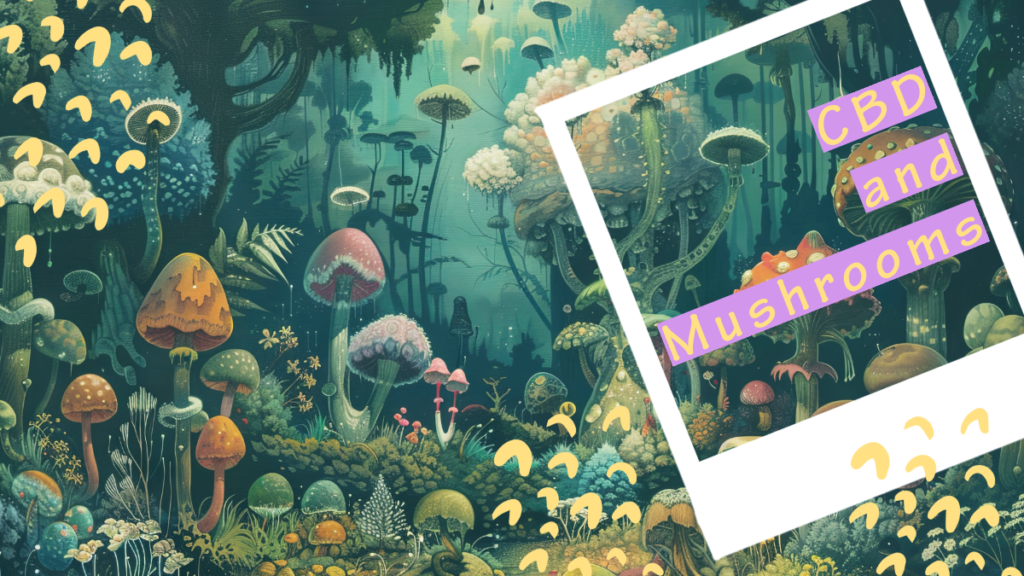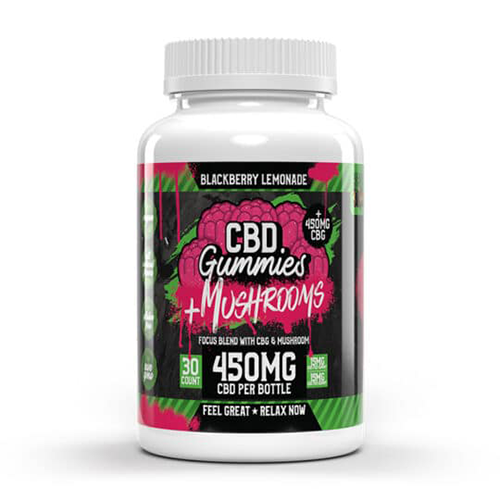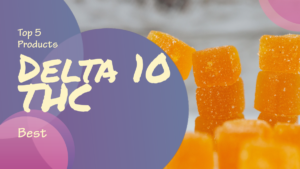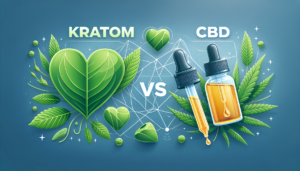CBD, or cannabidiol, has emerged as a beacon of hope for managing mental health issues, particularly anxiety. Sourced from cannabis, this non-psychoactive compound boasts a profile that doesn’t induce a high, providing a safe alternative for those wary of cannabis’s psychoactive effects. It’s one of the primary compounds in the Cannabis sativa plant that has been identified to influence mood and anxiety positively, setting the groundwork for its application in mental health management. Despite its potential benefits, CBD’s interaction with prescription drugs remains a point of cautious consideration due to its few side effects.
The exploration into natural remedies for anxiety doesn’t end with CBD; mushrooms, particularly varieties like lion’s mane, have been recognized for their ability to improve focus and relieve anxiety. This article ventures into the science of calm, evaluating how CBD and mushrooms for anxiety can be used synergistically to manage mental health. It delves into the benefits of CBD, the historic and modern medicinal uses of mushrooms, and elaborates on the potential effects and synergies when these natural solutions are combined. Through user experiences and precautions, this discussion aims to provide a comprehensive overview of natural anxiety management possibilities.

The Science and Benefits of CBD
CBD, or cannabidiol, is recognized for its non-psychoactive properties, distinguishing it from THC, the compound known for causing a high. This makes CBD a preferable option for those seeking relief without the psychoactive effects associated with marijuana. Research highlights CBD’s potential in treating a variety of health issues, including anxiety, inflammation, and chronic pain, making it a versatile component in wellness practices.
Understanding CBD’s Legal Status and Safety
CBD’s legal status in the United States is complex and varies depending on its source. It is legal when derived from hemp but remains regulated under marijuana laws when sourced from cannabis plants. Despite these complexities, CBD is generally available across most states, though it is crucial to verify its legality in your specific area. When considering the use of CBD, it’s also important to acknowledge its side effects, such as nausea, fatigue, and irritability, and its potential to interact with other medications by affecting liver enzymes.
Clinical Evidence Supporting CBD’s Efficacy
Significant scientific studies support CBD’s effectiveness, particularly in the management of severe epilepsy syndromes like Dravet syndrome and Lennox-Gastaut syndrome, where it has been approved by the FDA as a prescription medication.Beyond epilepsy, CBD shows promise in reducing anxiety symptoms, as demonstrated in various clinical settings including a notable study where a 300-mg dose significantly decreased anxiety during a simulated public speaking test.
CBD and Mental Health
CBD’s interaction with the body’s endocannabinoid system plays a crucial role in its effects on mental health, particularly in how it modulates serotonin signals, which are vital for mood regulation. This interaction suggests potential benefits for anxiety and depression, positioning CBD as a therapeutic candidate beyond conventional pharmaceuticals.
Consumer Considerations
For those considering CBD as a treatment option, it is vital to source it from reputable providers to ensure safety and efficacy. The market’s lack of regulation by the FDA means quality can vary significantly, underscoring the importance of careful product selection. Moreover, while CBD is celebrated for its health benefits, ranging from pain relief to mental health improvement, it is crucial to approach its use with a well-informed perspective, especially regarding dosage and potential interactions with other treatments.
By integrating CBD gummies into their wellness routines, many find a natural and effective way to enhance their quality of life, particularly in managing conditions like anxiety and chronic pain. However, as with any supplement, individual experiences may vary, and consulting with a healthcare provider is recommended to tailor its use to your specific needs.
Mystic Labs

The best deals with Mystic Labs coupon codes. A review of one of the top brands for Delta-9 and Kratom products.
The Historical and Modern Medicinal Use of Mushrooms
Mushrooms have been revered for their medicinal properties for millennia, utilized across various cultures to address a multitude of health issues. The Greek physician Hippocrates identified the amadou mushroom as a potent anti-inflammatory and a tool for cauterizing wounds. In Eastern traditions, mushrooms like reishi and lion’s mane were integral to medicinal practices, used to enhance the immune system and improve mental health.
Traditional Uses and Cultural Significance
- Ancient Asia: In ancient China and Japan, mushrooms were esteemed for their ability to strengthen the immune system and were incorporated into daily health regimens.
- Indigenous Practices: North American First Peoples used puffball mushrooms for their wound-healing properties.
- European Medicine: Hippocrates’ use of amadou mushrooms for anti-inflammatory purposes highlights the early recognition of their medicinal benefits in Europe.
Modern Scientific Validation
Recent studies have further solidified the role of mushrooms in modern medicine:
- Neuroprotective Effects: Reishi mushrooms have shown potential in reducing anxiety and depression symptoms through their modulation of the HPA axis and neuroprotective properties.
- Cognitive Health: Lion’s mane mushrooms are noted for their ability to synthesize NGF, crucial for neuronal health, which may aid in alleviating symptoms of anxiety and depression.
- Antioxidant Properties: The antioxidant and anti-inflammatory properties of Lion’s Mane mushrooms contribute to improved mental health and stress relief.
Psychedelic Research and Mental Health
The exploration of psilocybin, a compound found in over 100 mushroom species, has opened new avenues for treating mental health disorders:
- Clinical Studies: Research has demonstrated that psilocybin can significantly reduce symptoms of depression and anxiety, particularly in contexts like treatment-resistant major depressive disorder and anxiety associated with life-threatening illnesses.
- Regulatory Insights: Institutions like Johns Hopkins have received substantial funding to explore the therapeutic potentials of psilocybin, particularly for conditions like tobacco addiction.
The Role of Mycelium in Medicine
Mycelium, the vegetative part of a fungus, exhibits remarkable longevity and biological complexity, which may be key to its medicinal properties:
- Biological Activity: The interaction between mushroom-derived beta-glucans and the human immune system through pattern recognition receptors highlights the sophisticated medicinal potential of mushrooms.
- Environmental and Ecological Insights: Understanding the ecological roles of mushrooms and mycelia can enhance their application in naturopathic medicine, potentially augmenting conventional medical treatments.
Mushrooms continue to be a focal point of both historical reverence and modern scientific research, offering promising avenues for health and wellness. Their diverse applications range from traditional healing to contemporary clinical studies, underscoring their enduring value in human health.
Combining CBD and Mushrooms: Potential Effects and Synergies
Combining CBD and mushrooms, particularly in the context of managing anxiety and enhancing overall well-being, has garnered interest due to their complementary effects. Here’s a detailed look at how these two natural substances can be used together to potentially improve mental and physical health.
Synergistic Therapeutic Effects
The anxiolytic and calming properties of CBD may help mitigate potential anxiety or discomfort that might arise from consuming magic mushrooms. This combination can lead to a more balanced and grounded psychedelic experience.
Mood Stabilization
CBD is known for promoting emotional well-being and reducing stress, which may complement the mood-enhancing effects of magic mushrooms. This synergy could provide a more stable and positive mindset throughout the experience.
Enhanced Relaxation and Mindfulness
CBD’s ability to induce relaxation and promote mindfulness may synergize with the introspective and reflective aspects of the psychedelic experience. This combination facilitates a deeper state of relaxation, introspection, and self-reflection.
Addressing Physical Discomfort
Combining mushrooms with CBD-rich cannabis strains can reduce the feelings of nausea and anxiety that some individuals experience with mushrooms alone. This can make the overall experience more comfortable and less daunting.
Dosage and Administration
It is crucial to start with low doses when combining mushrooms and CBD to understand how your body responds to each substance separately. Once familiar with the effects, you can gradually experiment with combining them, keeping in mind the potential for enhanced effects.
Holistic Wellness Approach
The combination of CBD and medicinal mushrooms holds promise for a holistic approach to wellness. This synergy may revolutionize natural therapy for various physical and mental health issues by improving immunological function, reducing inflammation, and enhancing cognitive and neurological health.
Quality and Safety
Consumers are encouraged to source high-quality, lab-tested products to ensure the purity and potency of both CBD and mushrooms. Starting with lower doses and gradually adjusting based on tolerance and response can minimize side effects and maximize benefits.
This exploration into the combined use of CBD and mushrooms illustrates a promising natural approach to managing anxiety and enhancing overall wellness. As with any natural supplement, it is recommended to consult healthcare professionals to tailor this combination to individual health needs and conditions.
User Experiences and Precautions
Timing and Dosage for Optimal Use
Determining the best time of day to take CBD and functional mushroom products is largely a process of trial and error. For products aimed at relaxation and stress relief, it’s advisable to take them a few hours before bedtime or after a day’s work.Conversely, if the goal is to boost mood and energy, consider taking smaller doses throughout the day. Since everyone reacts differently to these compounds, there is no universal dosage for anxiety and stress relief, and personal experimentation is necessary to find the most effective regimen.
Interactions with Medications
CBD and many functional mushrooms can interact negatively with various medications. CBD is known to inhibit certain liver enzymes responsible for metabolizing many drugs, which can lead to increased side effects or reduced effectiveness of the medications. Similarly, some mushrooms may lower blood sugar and blood-platelet levels, posing risks for individuals on hypoglycemic medications. It’s crucial to consult with a healthcare provider before combining these natural products with other medications.
Legal and Safety Considerations
Despite the legalization of hemp and hemp-derived products in the U.S., not all CBD products are legal, especially those labeled as dietary supplements or added to food. Mislabeling is common, and the actual CBD content can vary from what is stated on the product’s label. Users should be aware of potential side effects such as liver injury, changes in alertness, gastrointestinal distress, and mood alterations. High doses of prescription CBD, like Epidiolex, have been linked to signs of liver injury.
Recommended Practices for Safe Usage
To minimize risks and enhance the benefits of CBD and mushrooms:
- Always start with low doses and gradually adjust based on personal tolerance and response.
- Opt for broad-spectrum CBD products or isolates that contain no trace amounts of THC to enhance safety.
- Verify the quality and purity of the products by choosing items that are lab-tested and verified.
- Always discuss potential usage with a healthcare provider, particularly when other medications are involved.
Adaptogens and Traditional Chinese Medicine
Adaptogens, a class of herbs revered for their stress-reducing properties, have garnered significant attention in both traditional medicine systems and modern scientific research. These remarkable plants, found in Traditional Chinese Medicine (TCM) and various herbal traditions worldwide, share striking similarities in their sources and applications. Adaptogens work by enhancing the body’s resistance to a wide range of external stressors, operating through a complex, multi-targeted approach that primarily affects the immune-neuro-endocrine system and the hypothalamic-pituitary-adrenal axis.
In TCM, herbs like Panax ginseng and Eleutherococcus senticosus have been used for centuries as tonics to boost vitality and overall health. Similarly, ginseng-like herbs such as Withania somnifera (Ashwagandha) in Ayurveda and Rhodiola rosea in traditional European medicine have been employed for their adaptogenic properties. These herbs were traditionally used to increase energy, improve mental clarity, and enhance physical endurance – applications that align closely with the modern understanding of adaptogenic effects.
Recent scientific studies have shed light on the mechanisms behind these traditional uses. For instance, research has shown that adaptogens like Panax ginseng can inhibit certain enzymes involved in stress hormone metabolism, potentially explaining their stress-reducing effects. Moreover, adaptogens have demonstrated the ability to increase cellular energy levels and prevent oxidative damage, contributing to the maintenance of normal adrenal function.
The modern applications of adaptogens extend beyond their traditional uses. They are now being studied for their potential in managing conditions such as adrenal fatigue, metabolic syndrome, and immune system disorders. The ability of adaptogens to modulate the body’s stress response makes them particularly relevant in today’s high-stress society, where chronic stress is increasingly recognized as a significant health concern.
As research continues to uncover the intricate workings of adaptogens, the bridge between traditional wisdom and modern science grows stronger. This convergence not only validates centuries-old practices but also opens new avenues for the utilization of these powerful herbs in contemporary healthcare. The ongoing exploration of adaptogens serves as a testament to the enduring relevance of traditional herbal knowledge in our quest for improved health and well-being.
Adaptogens Stress-Response Modifiers
Adaptogens are remarkable stress-response modifiers that enhance an organism’s ability to adapt and survive in challenging environments. Unlike traditional pharmaceuticals, the action of adaptogens cannot be fully explained using reductionist models. Instead, a network pharmacology approach is more suitable for understanding their complex mechanisms. Adaptogens work by influencing multiple molecular targets and signaling pathways associated with stress hormones and homeostasis regulators.
This unique action results in a wide range of benefits, including protection against chronic inflammation, neurodegenerative disorders, and metabolic issues. Interestingly, adaptogens exhibit polyvalent effects, meaning they can positively impact various age-related diseases and conditions. Their primary uses revolve around combating stress-induced fatigue, enhancing cognitive function, and supporting mental health. While adaptogens are beneficial for those already experiencing stress-related issues, their prophylactic use by healthy individuals to prevent age-related diseases is also promising.
It’s crucial to note that adaptogenic compounds, like many phytochemicals, don’t interact with just one type of receptor. Instead, they affect key mediators of the adaptive stress response at both intracellular and extracellular levels, highlighting their complex and holistic nature. This comprehensive approach to stress management and overall health makes adaptogens a fascinating subject in the realm of herbal medicine and a potential tool for improving quality of life in our stress-laden world.
Plants with Adaptogenic Properties
| Ajuga turkestanica | Piper longum L. | Alstonia scholaris |
| Eucommia ulmoides | Potentilla alba L. | Anacyclus pyrethrum |
| Evolvulus alsinoides | Ptychopetalum olacoides Benth | Andrographis paniculata |
| Firmiana simplex | Rhaponticum carthamoides | Aralia mandshurica |
| Gentiana pedicellata | Rhodiola heterodonta | Argyreia nervosa |
| Glycyrrhiza glabra L. | Rhodiola rosea L. | Argyreia speciosa |
| Asparagus racemosus | Hippophae rhamnoides L. | Salvia miltiorrhiza Bunge |
| Bacopa monnieri | Holoptelea integrifolia Planch | Schisandra chinensis |
| Bergenia crassifolia | Hoppea dichotoma | Scutellaria baicalensis Georgi |
| Caesalpinia bonduc | Sida cordifolia L. | Mucuna pruriens |
| Panax ginseng | Withania somnifera | Drypetes roxburghii |
Conclusion and Future Directions
Throughout this article, we’ve delved into the significant role that CBD and mushrooms play in managing anxiety and enhancing overall mental well-being. From CBD’s non-psychoactive, calming properties to the cognitive and mood-stabilizing benefits of mushrooms like lion’s mane and reishi, we’ve seen how these natural remedies offer a complementary approach to traditional anxiety treatments. The exploration of their combined use sheds light on a holistic method for improving mental health, suggesting that these natural substances, when used responsibly, can be part of a comprehensive wellness routine.
As we consider the implications of integrating CBD and mushrooms into our health regimen, it’s crucial to approach their use with informed caution and mindfulness of legal and safety considerations. The potential synergies between the two may offer groundbreaking prospects for natural, effective anxiety management, but further research and consultation with healthcare professionals are essential to safely harness their benefits. This article underscores the importance of quality, dosage, and individualized care in the pursuit of mental wellness, highlighting a path forward for those seeking alternative or complementary therapeutic options.
References
Cannabidiol (CBD) in the Self-Treatment of Depression-Exploratory Study and a New Phenomenon of Concern for Psychiatrists https://doi.org/10.3389/fpsyt.2022.837946
Evidence for Use of Cannabinoids in Mood Disorders, Anxiety Disorders, and PTSD: A Systematic Review Corneliu N. Stanciu https://doi.org/10.1176/appi.ps.202000189
Cannabidiol in Anxiety and Sleep: A Large Case Series Scott Shannon, MD, Nicole Lewis, ND, Heather Lee, PA-C, and Shannon Hughes, PhDAuthors Info & Affiliations https://doi.org/10.7812/TPP/18-041
Melas, Philippe A., Maria Scherma, Walter Fratta, Carlo Cifani, and Paola Fadda. 2021. “Cannabidiol as a Potential Treatment for Anxiety and Mood Disorders: Molecular Targets and Epigenetic Insights from Preclinical Research” International Journal of Molecular Sciences 22, no. 4: 1863. https://doi.org/10.3390/ijms22041863
Liao, Ly., He, Yf., Li, L. et al. A preliminary review of studies on adaptogens: comparison of their bioactivity in TCM with that of ginseng-like herbs used worldwide. Chin Med 13, 57 (2018). https://doi.org/10.1186/s13020-018-0214-9
Panossian, A. (2017), Understanding adaptogenic activity: specificity of the pharmacological action of adaptogens and other phytochemicals. Ann. N.Y. Acad. Sci., 1401: 49-64. https://doi.org/10.1111/nyas.13399




